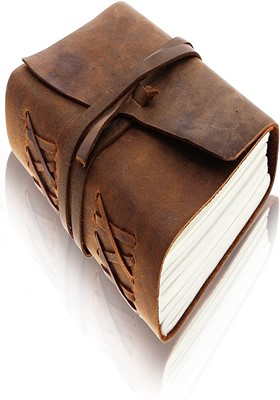ولایت حاکم بر کودکان بدون ولیّ خاص
محورهای موضوعی : حقوق خصوصی
1 - استادیار گروه فقه و حقوق، پژوهشکده زن و خانواده، واحد قم، ایران
کلید واژه: کودک بدون ولیّ خاص, ولایت فقیه بر یتیم, ولیّ عرفی, ولایت مؤمنین,
چکیده مقاله :
پژوهش حاضر ولایت فقیه بر کودک بدون ولیّ خاص را بررسی میکند. مشهور فقیهان در فرض فقدان پدر و جد پدری و عدم نصب وصیّ از طرف پدر و جد پدری، فقیه حاکم را ولیّ انحصاری چنین کودکی میدانند. دیدگاه پیشگفته افزون بر اینکه دلایل محکمی ندارد، با قرائن مخالف متعددی روبروست. این مقاله در ابتدا شمول دلایل ولایت فقیه در دو رویکرد ولایت مطلقه و ولایت از باب امور حسبه، نسبت به این موضوع را بررسی کرده در ادامه با ارائه دلایلی از آیات، روایات و گزارشهای تاریخی نتیجه میگیرد که شارع مقدس در این موضوع تشریع حقوقی مدّ نظر فقیهان را نداشته، تنها خواستار رعایت مصالح کودک بیسرپرست که امری عقلائی است شده است. در نهایت بیان میشود که تأکید بر ولایت انحصاری فقیه و کم رنگ نمودن نقش ولیّ عرفی همچون مادر و سایر نزدیکان کودک محصول عقلانیت عصری بوده، شاید تأکید بر آن در جامعه امروزی نه تنها صحیح نبوده، کارآمدی لازم گذشته خود را نیز نخواهد داشت.
The present study examines vilāyat-i faqī (jurist’s guardianship) on a child without a specific guardian. Well-known jurists, assuming the absence of a father or paternal ancestor or the absence of a will by the father or paternal ancestor, consider the ruling jurist as the exclusive guardian of such a child. This view, in addition to having no strong reasons, faces several opposing arguments. This article first examines the inclusion of the reasons of vilāyat-i faqī in the two approaches of absolute vilāyat and vilāyat regarding the affairs of hisbi, and then concludes by providing reasons from verses, narrations and historical reports that the Holy Shāri’ did not have the opinion of the jurists but only demanded that the interests of the orphan child be observed, which is a customary stance. Finally, it is stated that the emphasis on the exclusive guardianship of the jurist and diminishing the role of the customary guardian like the mother and other relatives of the child is the product of and is a matter of the rationality which stands for past and old eras, perhaps emphasizing it in today's society is not only wrong, but also it will not have the appropriate efficiency that it had long ago.
_||_
Ameli, M. (1990). Nahayatol Maram fi Sharh Mokhtasare Sharayeol Islam. Qom: Jame’ol ModarresinPublication.
Ansari, M. (2001). Ketabol Makaseb. Qom: Dar Al Hikma Publication.
Ardebili, A. (1983). Majmaol Fayedah Valborhan fi Sharhe Ershadolazhan. Qom: Jame’ol Moodarresin Publication.
Ardebili, A. (no date). Zobdat al-bayan fi Ahkam Alqur’an. Tehran: The Ja`faria le Ehyaye atharelJafariah Library.
Bahrani, S. (1986). Aiborhan fi Tafsirel- Qur’an. Tehran: Ba’ath Institute.
Bahrani, Y. (1985). Aihadayeghol Nazerah fi Ahkamol Etrato. Qom: Jame’ol Modarresin Publication.
Balaghi, M. (1999). Aiaa Al-rahman fi Tafsirel- Qur’an. Qom: Ba’ath Institute.
Bukhari, M. (1987). Sahih al-Bukhari. Beirut: Dar Ibn Katheer.
Fakhr al-Muhaqiqīn, M. (2008). Izahol Favayede fi Sharh Moshkelatel Qava’id. Qom: Ismaili Foundation.
Hakim, S. (no date). Nahj Al-faqih. Qom: Bahman Intra 22.
Hala, I. (1989). Aisrāir Alhavi le Tahrirel Fatavi. Qom: Jame’ol Modaressin Publication.
Hala, I. (2008). Ajvabatol Masayel va Rasayel fi Mokhtalafe Fonone lma’Refah. Qom: Dalile ma Publication.
Hassan Ibn Zain Al-Din, I. (no date). Maalemo-din va malaz0l- mojtahedin. Qom: Jame’ol Modarresin Publication.
Heli, H. (1992). Ghavaedol Ahkam fi ma’refatol Halal Valharam. Qom: Jame’ol Modarresin Publication.
Heli, H. (1999). Tahriro Ahkam –Shareiah ala Mazhab Imamiah. Qom: Imam Sadiq Foundation.
Heli, H. (2009). Tazkeratol- foghaha. Qom: Al-Bayt Institute.
Hur Amili, M. (1988). Vasayelol- Shia. Qom: Al-Bayt Institute.
Ibn Arabi, M. (no date). Ahkamol Quran. Beirut.
Ibn Hamza, T. (1988). Aivasilah ela nailo ifazilah. Qom: Ayatollah Mara’ashi Library.
Ibn Jairir, T. (1991). Jami al-Bayan fi Tafsir Al-Qur’an. Beirut: Dar al-Marifa Publication.
Iranian, A. (1986). Hashiatol Makaseb. Tehran: Culture and Islamic Guidance.
Isfahani, M. (2006). Hashiatol Makaseb. Qom: Zavel Qorba Publication.
Jabaei Ameli, Z. (1992). Masalekol-afham ela-tanghihe shayeaol-islam. Qom: Al Maarif Islamic Foundation.
Karaki, A. (1993). Jami` Al Maqasid fi Sharhel Qavayed. Qom: Ahol Bayt Foundation.
Keidari, Q. (1995). Isbaholshiah be mesbāhol sharī’a. Qom: Imam Sadiq Foundation.
Khoansari, S. (1985). Jameh Al-Madrak fi sharh Mokhtasar f al-Nafi '. Qom: Ismaili Foundation.
Khoei, A. (2007). Mosoah of Imam Al-Khoei. Qom: Ehyae Athare of Imam al-Khoyi Institute.
Khomeini, R. (1994). Ketabol- beiy’. Qom: Jame’ol Modarresin Publication.
Koleiny, M. (1987). Al-Kafi. Tehran: Dar Al-Kotob Al-Islamiyya.
Majlisī, M. (1984). Mer’ātol Ughul fi Sharh Akhbari Alirrasol. Tehran: Dar Al-Kotob Al-Islamiyya.
Majlisī, M. (1984). (1986). Fiqhorridhā. Mashhad: Alol Bayt Foundation.
Najafi, M. (1984). Jawaher Al-Kalam fi Sharhe Sharāyeol Islam. Beirut: Daro Ihyāel Turāthel Arabī.
Naraqī, A. (1996). Avā’idol Ayyam fi Bayane Qavā’idel Ahkām. Qom: Tablighat Islami.
Sabzwari, S. A. (1988). Mavahebol alrahman fi tafsirel -qur’an. Beirut: Al-Bayt Institute.
Sadooq, E. (1992). Man La Yahzorohol Faqi. Qom:Jame’ol ModarresinPublication.
Sadr, S. M. (2000). Alma’alemol Jadida Lelosol. Qom: Kongarah Shahid Sadr.
Sayyid, R. (1986). Haghayeghol Tavil fi Motashabeh Tanzil. Beirut: Dar Al-Adwaa.
Shaheedi, M. (1996). Hadayatol Taleb ela Asrarel Makaseb. Tabriz: Etili’at.
Tabarsi, F. (1993). Majma 'Al-Bayan fi Tafsir al-Qur’an. Tehran: Nasir Khusraw Propagation.
Tabatabai, J. (2013). Ta’amoli Darbareh Iran. Tehran: Minoy Khard Institute.
Tabatayi, S. (1996). Al-Mizan fi Tafsirel Qur’an. Qom:Jame’ol Modarresin Publication.
Tousi, M. (1980). (no date). Altebyan fi Tafsirel Quran. Beirut: Darol Arabī.
Tousi, M. (1980). Alnahayat fi Mojaradel- Feghh val Fatavi. Beirut: Dar Al-Kitab Al-Arabi.
Tousi, M. (1987). Alkhelaf. Qom: Jame’ol ModarresinPublication.
Tousi, M. (2008). Mabsot fi feghhe emammiah. Tehran: Almaktabah.
Yazdi, S. M. (1998). Aiurwatol Wuthqā (al-muhashā). Qom: Jame’ol ModarresinPublication.
Zanjani, S. M. (1998). Ketabol Nekah. Qom: Ray Pardaz Foundation.

